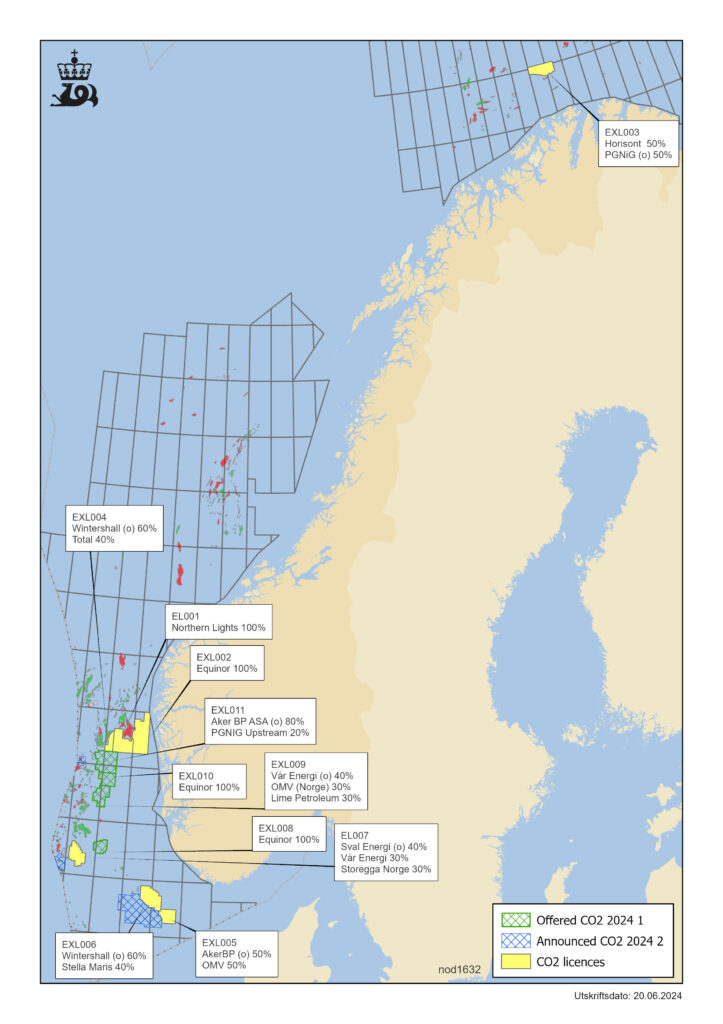28/06/2024
Director General Torgeir Stordal shares his thoughts on the trends in activity on the Norwegian Continental Shelf (NCS) in the first half of 2024.
“First of all, I’d like to emphasise the broad range of activities on the NCS, which clearly shows that this shelf is developing. Petroleum continues to be the dominant industry, but we see a step-up in actvitity in potential new industries; both CO2 storage, offshore wind and deep sea minerals”, Stordal says.
“We’re seeing high and stable oil and gas production , many projects are under construction at yards around the country, and exploration activity is high”.
What are your thoughts on exploration results so far this year?
“It’s great to see such high levels of exploration activity, and we’re on track for nearly 40 wells this year. It’s important to identify resources we can develop over existing infrastructure. Some of this year’s discoveries are candidates for development over a relatively short timeframe.”
Stordal is also pleased to see that more exploration wells are being drilled in frontier areas.
“Apart from that, it’s a bit too soon to conclude on how successful the exploration has been, as we’re only halfway through the year. We’ll be reviewing this at the end of the year.”
What are your thoughts on the maturation of new projects moving forward?
“From the authorities’ perspective, we want the industry to emphasise long-term value creation and to develop all profitable resources. We observe that work is being done to mature early-phase projects, so we expect to see several new development plans over the next few years.”
At the same time, it’s important to maintain high levels of exploration activity in the near future. There are also still considerable resources in operating fields where new investments are needed. This includes the drilling of a number of production wells in an effort to maintain high production levels:
“These are topics we follow up when we engage with the industry, both in individual production licences and at the executive level.”
New licences were recently awarded for CO2 storage. Is this something that’s been taking up a lot of the Directorate’s time?
“When it comes to CO2 storage, we assess both areas and concrete applications, and we provide professional advice to the Ministry of Energy in connection with awards. We’ve seen a considerable rise in the interest in acreage suitable for such storage this year.”
So far, 11 licences have been awarded to 13 companies.
“As we award more storage licences and we see a general increase in activity for new industries, it’ll be important to work hard to ensure good coexistence between all users of the ocean.”
The text continues below the map.

CO2 storage: Status of licences and ownership.
In January, the Storting opened an area on the shelf for mineral activities. What does this mean for activity in the Directorate?
“We’ve spent this spring on an assignment from the Ministry of Energy which involves facilitating a licensing round. Based on input from the industry and our technical work and with we have made a proposal for an area to be available for applications in this first round, which the Ministry now have put on a public hearing. The round is scheduled to be announced later this year. We’re the Ministry’s expert resource in the effort to assess acreage and applications. At the same time, we’re continuing the mapping effort run by the authorities of both mineral resources and the environment.”
Would you say that the last six months since the Directorate became the Norwegian Offshore Directorate have been different?
“A lot of things are still the same, but we’re seeing a marked increase in activity within CO2 storage and mineral activities this year. This is why we’re devoting quite a few more resources to these areas than before.”
Looking to the future, are you concerned about any of the developments on the shelf?
“A lot of positive things are happening on the shelf. We’re still producing a lot of the energy that Europe needs, with increasingly lower emissions. We have an industry that’s been successful in developing the shelf, and we’re now laying the groundwork for new industries to create value in the future. If we’re going to deliver on our primary objective, which is to create as much value for society as possible, it’s important to ensure that this development continues. If I’m concerned about anything, it’s that this won’t happen.”
The Norwegian Offshore Directorate’s resource report, which will be presented in August, will feature new analyses, including a new future outlook for the shelf.
“I hope this report can provide a basis for good discussions and decisions to be made in the years to come!”
Will you be attending ONS this year?
“Definitely – we’ll be presenting the 2024 Resource Report the week before, and we’ll be spending a lot of time at ONS sharing facts and knowledge about our shelf, both at our stand together with the Ministry of Energy, and in dedicated professional presentations. ONS is a great arena for good dialogue with both the industry and other domestic and international stakeholders.”
The Norwegian Offshore Directorate will also present the 2024 Improved Recovery Award during the main conference at ONS.



